Sorry for taking so much time off from blogging, but this new semester is kicking my butt with work and my new novel is close to complettion, so that's been taking up a great deal of time, too.
At any rate, as soon as the novel is done, I'll have more time, and I'll be back (as Arnold said).
On the other hand, I hope you red this heart-warming story on AOL.
The one about the autistic boy who got lost at sea but then was rescued miraculously hours later?
Thanks,
Preston
______________________________________
Boy's Illness Credited for Survival at Sea
CNN
(Sept. 10) - Walter Marino shouted to his 12-year-old son, Christopher, as he drifted farther away in the Atlantic Ocean.
"To infinity," the father yelled.
"And beyond," Christopher replied
After a rip current swept the boy and his father out to sea Saturday, darkness fell, and the sound of rescue helicopters and boats grew faint until they were nonexistent.
Despite the danger, Christopher, who has autism, was enjoying himself, his father said. The boy lacks a fear of death because of his autism and finds comfort in the water, Marino told CNN.
Marino finds comfort in his son. Their unique circumstances helped keep them alive for more than 12 hours in the open ocean, Marino said.
"With many kids with autism, the thing that is so dangerous is that they have no concept of fear or fear of death," Marino said. "In this case, though, it perhaps saved him -- that and the fact that water is one of his favorite things. Whenever he goes missing or tries to run away, we can always find him near water ... even at the mall if it is just near a fountain."
Christopher was laughing as the father and son were pulled farther and farther from Ponce Inlet, Florida. As the pair lunged for buoys -- and missed -- Christopher couldn't help but giggle. It was this spirit that helped ground Marino, the father said.
It was a big entertainment roller coaster for him, that's what got me through it -- because he wasn't freaking out," said Marino, 46.
But after four hours at sea without a life vest, and after it became obvious that rescue operations had ceased for the night, jellyfish began to sting the pair. That began to "freak Christopher out," his father said.
While Christopher is almost nonverbal in his communication, he and his father use catch phases from Disney movies, which the boy loves, to communicate.
After four hours, the currents picked up, and Christopher began to drift from his father's reach. Because of the darkness, they couldn't see each other. So Marino shouted out part of a phrase to his son.
"To infinity," Marino shouted, referencing one of Christopher's favorite lines from the movie "Toy Story."
"And beyond," Christopher shouted back, pumping his fist in the air like movie character Buzz Lightyear.
The call and response went on for a while, with Marino choosing different phrases and Christopher yelling back. But over the course of an hour, Christopher's voice faded until his father couldn't hear him anymore.
"That's when I resigned myself to the fact that he was gone," Marino told CNN, saying he believed his son had been pulled under the water. At the time, Marino said, he thought about giving up, until he thought of his daughter Angela. She had just registered for ballroom dance classes, and he told himself over and over he would live to see her dance.
"I just kept thinking about her and how I was not going to leave her without a brother and her father in the same day -- not on my watch," he told CNN. "It was the visual of her that kept me going."
Marino used other tricks to keep his mind focused in the 81-degree water. He remembered going to the Ponce Inlet museum, which highlighted a lighthouse. He then set out to use the lighthouse as a guide for himself, so he would know how far he was from shore.
He alternated doing the "doggie paddle" and floating on his back with his ears in the water, the way his son loved to.
He would float on his back and watch the bright stars. He wished on four shooting stars that flew by and used constellations in the sky to know what direction to go if he drifted away.
Under the stars and in the dark Atlantic, he turned to his spirituality, realizing his life was in God's hands. A religious medal rested on his chest.
As morning turned, Marino tried to stay alert for sounds that might mean help was near.
Hearing a boat motor, he waved frantically.
Soon, a group of fishermen pulled him aboard their boat. A flash of light from the medallion had caught the eye of one of the anglers, who shouted at his brother at the helm to stop the boat, one of Marino's rescuers told him.
The first thing Marino asked was if the men had heard anything about his son, but they hadn't.
Marino began to grieve. It had been nearly eight hours since he had last seen his son, and he believed he was gone for good. He wept.
When the U.S. Coast Guard arrived, Marino asked them, too, about Christopher, but they said they had not found him. The Coast Guard crew asked if he wanted to go to the hospital, but he decided to stay on the boat so the search for Christopher wouldn't be disrupted.
But Marino chose not to watch the water as the search went on.
"I chose to be down below, because I didn't want to see them pull up on Christopher being face-down in the water," he said.
So the Coast Guard vessel steamed on. After more than an hour, the boat went full throttle, jolting Marino backward in his space below deck. Suddenly, the boat was idling, and Marino was asked to come topside.
"That was my personal green mile," Marino told CNN, a reference to what some people call the walk on death row from the cell to the execution chamber.
"I took three steps up the green mile to the back of the deck, and they pointed to the helicopter and they said, 'You see that helicopter? It has your son on it, and he is fine,' " Marino recalled a crew member saying.
Marino was so excited he began "kissing all the Coast Guard guys."
The father and son were reunited at the emergency room at Halifax Medical Center in Daytona Beach, where they were treated for dehydration.
"We were both very weak, tired and thirsty," Marino said. "But I reached out and held his hand and could tell from the same sparkle in his eye that he was going to be fine."
While Christopher can't truly communicate what he felt during those hours alone at sea, his father hopes that one day, he will be able to tell him what he felt alone in the Atlantic.
The one thing Marino knows is that his son still loves the water and that the experience hasn't taken away that special comfort from him.
"It may be a while before we go back to a beach," Marino said. "But he still loves the water. He's already gotten back in a pool."
© 2008 Cable News Network. Turner Broadcasting System, Inc. All Rights Reserved.
2008-09-10 16:56:57
A blog for lovers of the printed word (novels, short stories, poems--the Ing so to speak), popular film, politics, and casinos (the Bling).
Friday, September 12, 2008
Subscribe to:
Posts (Atom)
Lipshitz 6

Reading T Cooper for Christmas
Click Here to Purchase Lipshitz 6
Punk Blood

Jay Marvin
Click Here to Purchase Punk Blood
Breath, Eyes, Memory

Anonymous Rex
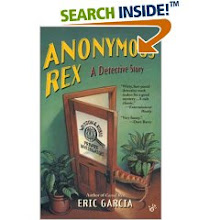
Reading Eric Garcia for Christmas
Click Here to Purchase Anonymous Rex
Vinegar Hill

Reading A. Manette Ansay for Christmas
Click Here to Purchase Vinegar Hill
Nicotine Dreams

Reading Katie Cunningham for Christmas
Click Here to Purchase Nicotine Dreams
Junot Diaz
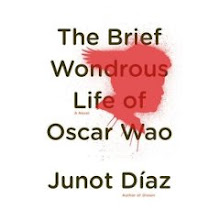
Pulitzer Prize Winner!!!
Click Here to Purchase The Brief Wondrous Life of Oscar Wao
Edwige Danticat

New Year's Reading
Click Here to Purchase Brother I"m Dying
Greed
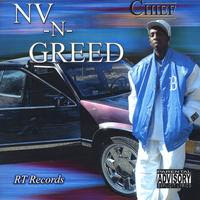
This Brother Is Scary Good
Sweet Music
One More Chance
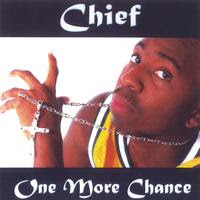
The genius Is At It Again/The Rapper CHIEF aka Sherwin Allen
Sandrine's Letter
Check out Sandrine's Letter To Tomorrow. You will like it, I insist.
Sandrine's Link
Cool Sites
- Akashic Books
- All or Nothing (My Other Blog)
- Asili The Journal
- Best Gamblling News Site
- Black Star Review
- Book Remarks
- Booktour.com
- Carolina Wren Press
- Click Here for Some Pretty Good Writing Contests
- Dedra Johnson
- Enrico Theoc
- Felicia Luna Lemus
- Florida Book Review
- Foreword Magazine
- Gambling Is Linked to Suicide
- Gambling Is Not Linked to Suicide
- Gaming Law Review
- Gene Durnell's The Thinking Journalist
- Gene Durnell's The Thinking Journalist
- Geoffrey Philp's Blog
- Get Chief's CDs on CD Baby
- Getting Past Gambling
- Gonzalo Barr's Blog
- Good Reads
- Hallema's Homepage
- Help With Gambling Addiction
- Jeremy Shipp's Website
- John Dufresne's Blog
- Leonard Nash Homepage
- Links to Seminole Casinos in Florida
- Martha Frankel's Homepage
- Michael A. Gonzales
- Miss Snark/ An Agent Gives Great Publishing Advice
- More Addiction Help
- No Gambling.com
- Pat MacEnulty
- ScrewIowa.com
- St. Louis Rams, The Greatest Show on Turf
- Suicide reference library
- T Cooper
- University of Florida
- Vicki Hendricks
- Walter Jacobs's Blog
- Writers Who Read
- Writing with Celia

All or Nothing

Editorial Reviews of All or Nothing
New York Times--". . . a cartographer of autodegradation . . . Like Dostoyevsky, Allen colorfully evokes the gambling milieu — the chained (mis)fortunes of the players, their vanities and grotesqueries, their quasi-philosophical ruminations on chance. Like Burroughs, he is a dispassionate chronicler of the addict’s daily ritual, neither glorifying nor vilifying the matter at hand."
Florida Book Review--". . . Allen examines the flaming abyss compulsive gambling burns in its victims’ guts, self-esteem and bank accounts, the desperate, myopic immediacy it incites, the self-destructive need it feeds on, the families and relationships it destroys. For with gamblers, it really is all or nothing. Usually nothing. Take it from a reviewer who’s been there. Allen is right on the money here."
Foreword Magazine--"Not shame, not assault, not even murder is enough reason to stop. Allen’s second novel, All or Nothing, is funny, relentless, haunting, and highly readable. P’s inner dialogues illuminate the grubby tragedy of addiction, and his actions speak for the train wreck that is gambling."
Library Journal--"Told without preaching or moralizing, the facts of P's life express volumes on the destructive power of gambling. This is strongly recommended and deserves a wide audience; an excellent choice for book discussion groups."—Lisa Rohrbaugh, East Palestine Memorial P.L., OH
LEXIS-NEXIS--"By day, P drives a school bus in Miami. But his vocation? He's a gambler who craves every opportunity to steal a few hours to play the numbers, the lottery, at the Indian casinos. Allen has a narrative voice as compelling as feeding the slots is to P." Betsy Willeford is a Miami-based freelance book reviewer. November 4, 2007
Publisher’s Weekly--"Allen’s dark and insightful novel depicts narrator P’s sobering descent into his gambling addiction . . . The well-written novel takes the reader on a chaotic ride as P chases, finds and loses fast, easy money. Allen (Churchboys and Other Sinners) reveals how addiction annihilates its victims and shows that winning isn’t always so different from losing."
Kirkus Review--"We gamble to gamble. We play to play. We don't play to win." Right there, P, desperado narrator of this crash-'n'-burn novella, sums up the madness. A black man in Miami, P has graduated from youthful nonchalance (a '79 Buick Electra 225) to married-with-a-kid pseudo-stability, driving a school bus in the shadow of the Biltmore. He lives large enough to afford two wide-screen TVs, but the wife wants more. Or so he rationalizes, as he hits the open-all-night Indian casinos, "controlling" his jones with a daily ATM maximum of $1,000. Low enough to rob the family piggy bank for slot-machine fodder, he sinks yet further, praying that his allergic 11-year-old eat forbidden strawberries—which will send him into a coma, from which he'll emerge with the winning formula for Cash 3 (the kid's supposedly psychic when he's sick). All street smarts and inside skinny, the book gives readers a contact high that zooms to full rush when P scores $160,000 on one lucky machine ("God is the God of Ping-ping," he exults, as the coins flood out). The loot's enough to make the small-timer turn pro, as he heads, flush, to Vegas to cash in. But in Sin City, karmic payback awaits. Swanky hookers, underworld "professors" deeply schooled in sure-fire systems to beat the house, manic trips to the CashMyCheck store for funds to fuel the ferocious need—Allen's brilliant at conveying the hothouse atmosphere of hell-bent gaming. Fun time in the Inferno.
Florida Book Review--". . . Allen examines the flaming abyss compulsive gambling burns in its victims’ guts, self-esteem and bank accounts, the desperate, myopic immediacy it incites, the self-destructive need it feeds on, the families and relationships it destroys. For with gamblers, it really is all or nothing. Usually nothing. Take it from a reviewer who’s been there. Allen is right on the money here."
Foreword Magazine--"Not shame, not assault, not even murder is enough reason to stop. Allen’s second novel, All or Nothing, is funny, relentless, haunting, and highly readable. P’s inner dialogues illuminate the grubby tragedy of addiction, and his actions speak for the train wreck that is gambling."
Library Journal--"Told without preaching or moralizing, the facts of P's life express volumes on the destructive power of gambling. This is strongly recommended and deserves a wide audience; an excellent choice for book discussion groups."—Lisa Rohrbaugh, East Palestine Memorial P.L., OH
LEXIS-NEXIS--"By day, P drives a school bus in Miami. But his vocation? He's a gambler who craves every opportunity to steal a few hours to play the numbers, the lottery, at the Indian casinos. Allen has a narrative voice as compelling as feeding the slots is to P." Betsy Willeford is a Miami-based freelance book reviewer. November 4, 2007
Publisher’s Weekly--"Allen’s dark and insightful novel depicts narrator P’s sobering descent into his gambling addiction . . . The well-written novel takes the reader on a chaotic ride as P chases, finds and loses fast, easy money. Allen (Churchboys and Other Sinners) reveals how addiction annihilates its victims and shows that winning isn’t always so different from losing."
Kirkus Review--"We gamble to gamble. We play to play. We don't play to win." Right there, P, desperado narrator of this crash-'n'-burn novella, sums up the madness. A black man in Miami, P has graduated from youthful nonchalance (a '79 Buick Electra 225) to married-with-a-kid pseudo-stability, driving a school bus in the shadow of the Biltmore. He lives large enough to afford two wide-screen TVs, but the wife wants more. Or so he rationalizes, as he hits the open-all-night Indian casinos, "controlling" his jones with a daily ATM maximum of $1,000. Low enough to rob the family piggy bank for slot-machine fodder, he sinks yet further, praying that his allergic 11-year-old eat forbidden strawberries—which will send him into a coma, from which he'll emerge with the winning formula for Cash 3 (the kid's supposedly psychic when he's sick). All street smarts and inside skinny, the book gives readers a contact high that zooms to full rush when P scores $160,000 on one lucky machine ("God is the God of Ping-ping," he exults, as the coins flood out). The loot's enough to make the small-timer turn pro, as he heads, flush, to Vegas to cash in. But in Sin City, karmic payback awaits. Swanky hookers, underworld "professors" deeply schooled in sure-fire systems to beat the house, manic trips to the CashMyCheck store for funds to fuel the ferocious need—Allen's brilliant at conveying the hothouse atmosphere of hell-bent gaming. Fun time in the Inferno.
At Books and Books
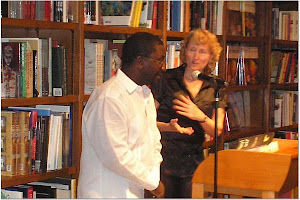
Me And Vicki at Our Reading
Bio
Preston L. Allen is the recipient of a State of Florida Individual Artist Fellowship in Literature and the Sonja H. Stone Prize in Fiction for his short story collection Churchboys and Other Sinners (Carolina Wren Press 2003). His works have appeared in numerous publications including The Seattle Review, The Crab Orchard Review, Asili, Drum Voices, and Gulfstream Magazine; and he has been anthologized in Here We Are: An Anthology of South Florida Writers, Brown Sugar: A Collection of Erotic Black Fiction, Miami Noir, and the forthcoming Las Vegas Noir. His fourth novel, All Or Nothing, chronicles the life of a small-time gambler who finally hits it big. Preston Allen teaches English and Creative Writing in Miami, Florida.